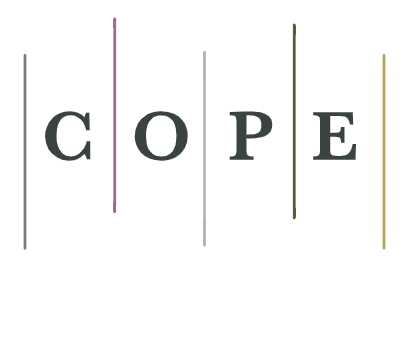Plagiarism Ethics
Plagiarism, Self-Plagiarism, and AI-Generated Content Policy
The International Journal of Combinatorial Optimization Problems and Informatics adheres to the highest standards of academic integrity. All submitted manuscripts must be free of plagiarism, self-plagiarism, and unethical practices in content generation. The following categories are strictly prohibited:
1. Plagiarism
Plagiarism is the unethical use of others’ work without proper acknowledgment. The following forms of plagiarism are considered serious violations:
-
Literal Plagiarism:
Copying and pasting text from any source, such as the Internet, books, or other papers, with or without minor modifications. This includes verbatim reproduction without proper citation. -
Intelligent Plagiarism:
Sophisticated techniques to disguise plagiarism, including:- Text Manipulation: Paraphrasing or summarizing by replacing words with synonyms, altering sentence structures, or shortening phrases while retaining the original meaning.
- Translation Plagiarism: Translating content from one language to another, either automatically or manually, without citing the original source.
- Idea Adoption: Using ideas, methodologies, results, findings, or conclusions from other works without appropriate acknowledgment.
2. Self-Plagiarism
Authors are prohibited from reusing substantial portions of their previously published or submitted work without proper citation or justification. This includes, but is not limited to:
- Republishing identical or near-identical content from earlier articles.
- Reusing data, figures, or results without appropriate citation.
The journal allows minor overlap for review articles or follow-up studies, provided the authors cite their prior work and clearly explain its relationship to the new submission.
3. AI-Generated Content
The use of AI tools (e.g., ChatGPT, JasperAI, Bard) for generating text, figures, or content must be disclosed in the manuscript. Submissions must adhere to the following guidelines:
- AI-generated text must not be presented as original work.
- Proper acknowledgment must be given when using AI tools for summarization, analysis, or drafting.
- Authors are responsible for the originality and ethical integrity of the content, regardless of the tools employed.
Failure to disclose AI usage will be considered unethical and may result in rejection or retraction of the article.
4. Tools for Plagiarism Detection
The journal actively employs reliable plagiarism detection tools, including:
- Turnitin (Commercial)
- iThenticate (Commercial, widely used in JCR journals)
- Grammarly Plagiarism Checker (Commercial/Free version for basic checks)
- Quetext (Free/Commercial)
- PlagScan (Commercial)
Authors are encouraged to use the following free or open-source tools before submission:
- Duplichecker (https://www.duplichecker.com/)
- SmallSEOTools Plagiarism Checker (https://smallseotools.com/plagiarism-checker/)
- Plagiarism Detector Free (https://plagiarismdetector.net/)
While these tools are helpful, authors remain fully responsible for ensuring the originality of their work.
5. Consequences of Misconduct
Manuscripts found to contain any form of plagiarism, self-plagiarism, or undisclosed AI-generated content will be rejected immediately. If discovered post-publication, the article will be retracted, and appropriate action will be taken. Repeat violations may lead to a ban from future submissions.
The journal reserves the right to report cases of academic misconduct to the authors’ institutions or funding bodies when necessary.
Encouragement of Best Practices
Authors should ensure:
- Proper citation of all sources, including ideas and methodologies.
- Transparent disclosure of AI usage in the manuscript.
- Ethical adherence to research integrity guidelines outlined by COPE (Committee on Publication Ethics).





